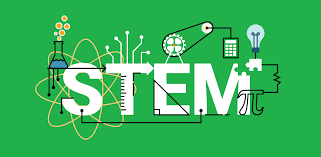Science, Technology, Engineering and Mathematics (STEM) are important for building and maintaining the development of any successful country.
Capacity in science and technology is also a key element in economic and social development. Promoting science education at all educational levels, and scientific literacy in society in general, is a fundamental building block to building a country’s capacity in science and technology.
STEM knowledge and skills enable both individual opportunity and national competitiveness, and the nation needs to develop ways of ensuring access to high-quality education and training experiences for all students at all levels and for all workers at all career stages.
STEM fields are expected to provide the great majority of jobs in the future. Future workers must have a solid foundation in STEM to be productive.
STEM knowledge has become essential. Employers want both entry-level and managerial workers to have the types of critical thinking, problem-solving and teamwork skills that study of STEM can develop. Furthermore, all youth (and adults) need these skills in everyday life to solve problems and make decisions.
Societies seeking new scientific knowledge and encouraging creative and technological innovations will be able to properly utilize new technologies, increase productivity, and experience long term sustained economic growth.
Science, technology, engineering, and mathematics education (STEM) is important to increase public awareness, understanding and literacy regarding science, engineering and technology.
The general view STEM education is necessary to help countries (especially developing countries) to build up a critical mass of scientists, researchers, and engineers to facilitate economic development, participate fully in the global competitiveness economy and job creation.
Encouraging STEM education growth in developing countries is important because many new jobs are being created in the booming medicine, computer, and IT industries worldwide. Educating people in these fields is going to bring tremendous growth to the nation’s economy and help get people out of poverty.
Engineers build, create and design machines and public works to address needs and improve quality of life. Engineers construct and maintain a nation’s infrastructure. Infrastructure is vital to a country, as it enables, maintains and enhances societal living conditions.
The United Nations has published findings that affirm that STEM education “can remove poverty and reduce inequality in developing countries.”
STEM education has been useful for enhancing teacher training in developing countries, stimulating innovative approaches for secondary education and aligning the demand and supply of skills (Burnett & Jayaram, 2012; Hooker, 2017).
STEM education is at the heart of a new wave which is transforming the way we live and the way we work. People working in STEM are changing the face of the world we live in every day.
The World Economic Forum’s report states that as many as 65% of children in primary school today will work in new, STEM-based fields in the future when they enter the workforce.
Our education system plays a key role in equipping students with the knowledge, skills and dispositions to effect these changes.
STEM education in our early year’s settings and schools will ensure we have an engaged society and a highly-skilled workforce in place.
STEM education has the approach of educating students in four specific disciplines; science, technology, engineering and mathematics in an interdisciplinary and applied approach based on real-world applications.
STEM education integrates them into a cohesive learning paradigm rather than teaching the four disciplines as separate and discrete subjects like in a school classroom.
According to Hays Blaine Lantz, Jr. (2009), STEM education offers students one of the best opportunities to make sense of the world holistically, rather than in bits and pieces.
In Malaysia, the development of STEM education is an important agenda for the transformation of the education system and prepares the students to meet the challenges of the 21st century.
The 21st century job market requires a new set of skills, and there is more emphasis on technology skills (Voogt & Roblin, 2012).
STEM education is globalised: Commonwealth countries follow trends in the United Kingdom while European and Asian countries tend to follow developments in the United States (Williams, 2011).
As our world becomes more interconnected, countries prioritizing STEM education and research will make significant advances in alleviating poverty and sustaining economic, cultural and societal growth. Undoubtedly, the role of STEM in developing countries is significant, just as it is in our modern world.
Most technical problems can be solved with the application of Science, Technology, Engineering and Mathematics. But most importantly is having the people behind the technologies with the foresight and interest to connect the dots and innovate.
Ministry of Education Malaysia launched STEM education initiative in Malaysia Education Blueprint 2013 – 2025. It aims is to prepare students with the skill to meet the science and technology challenges and to ensure Malaysia has enough qualified STEM graduates
This is the vision of the STEM initiative in Malaysia. The initiative is ultimately tasked with providing a pipeline of students that will eventually fill the one million new STEM careers that Malaysia will need by 2020 and beyond.
This goal of embedding STEM knowledge and skills in all students is best reflected in a prominent global movement that Malaysia is part of – STEMforALL. It represents the philosophy that a STEM education is relevant and beneficial to all, regardless of gender, socio-economic status or even ability.
The importance of STEM today should not be underestimated as its role is becoming increasingly significant in the future. The technology produced today is altering people’s lives at a rate faster than ever before.
STEM education fosters a skill set that stresses critical thinking and problem-solving abilities. This type of skill set encourages innovation among those who possess it thus preparing them as highly skilled workers needed in the industry.
Ultimately, it is hoped that all parties can join the movement to ensure that our children are armed with future-proof STEM skills to engage in Industry Revolution 4.0 for our nation.






